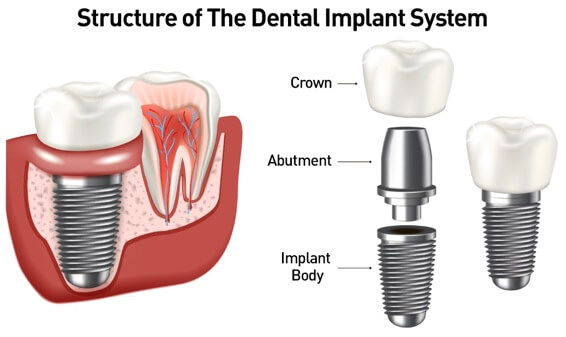Benefits and Risks of Dental Implants: Is It Worth It?
Dental implants offer a host of benefits, but like any medical procedure, they come with potential risks. This article explores the advantages and disadvantages of dental implants, helping you determine if this treatment is the right choice for you.
Dental implants are widely regarded as one of the best solutions for replacing missing teeth. The primary benefit is that they provide a permanent and natural-looking replacement. Since they are anchored directly into the jawbone, implants function like real teeth, allowing you to eat, speak, and smile without worry. Additionally, they help preserve the bone structure in the jaw, preventing the bone loss that often follows tooth loss. This not only helps with the appearance of your smile but also supports the overall health of your mouth.

Another significant benefit is that dental implants do not require altering surrounding teeth, unlike bridges, which may need to be attached to adjacent teeth. This makes implants a more conservative option in terms of preserving the health of your natural teeth. Furthermore, unlike dentures, implants are not removable and do not require special cleaning or adhesives. This convenience can be a significant advantage for many patients, as it eliminates the discomfort and hassle often associated with traditional dentures.
However, dental implants are not without their risks. The procedure involves surgery, which means there is always a risk of infection, nerve damage, or implant failure. While these risks are relatively low when performed by an experienced professional, they still exist. Additionally, dental implants can be expensive, often costing more than other replacement options like bridges or dentures. The overall cost of the treatment depends on several factors, including the complexity of the procedure and the number of implants needed.
Before deciding to get dental implants, it is important to consult with a skilled dentist who can assess your oral health and determine whether you are a good candidate. If you have sufficient bone density and healthy gums, implants can be a life-changing solution. However, if you have underlying health conditions, such as severe gum disease or osteoporosis, additional treatment may be required to ensure the success of the procedure.